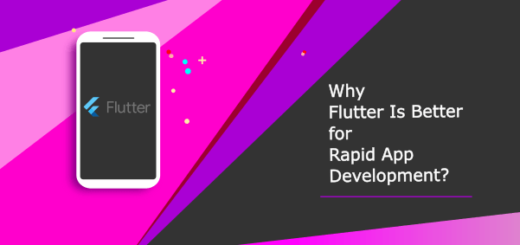Let’s Add Your Website to Flutter WebView App
Let’s create a new project like Hello, World in Android Studio.
Remove all the code of main.dart file in Android Studio.
It’s time to create a class that extends the Stateless widget.
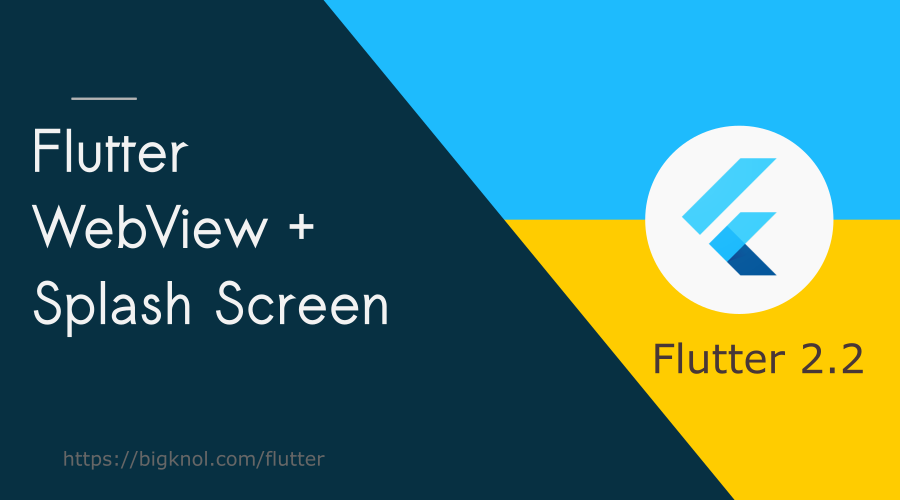
WebApp Class
class WebApp extends StatelessWidget
{
@override
Widget build(BuildContext context) {
return MaterialApp(
theme: ThemeData(primarySwatch: Colors.red),
home: Scaffold(
appBar: AppBar(title: Text("Kodia"),),
body: Website(),
),
debugShowCheckedModeBanner: false,
);
}
}If you observe the code, you can see the app bar’s title is Kodia (We use Scaffold to create an app bar title. ) and, I did call a new Stateless widget class called ‘Website()’.
The Website class’s build method has a widget called WebView. Flutter uses the WebView widget to load webpage inside your flutter app
How to add Flutter WebView Dependency?
Step 1 goto https://pub.dev/packages/webview_flutter
Step 2 : Copy the Flutter WebView Dependency
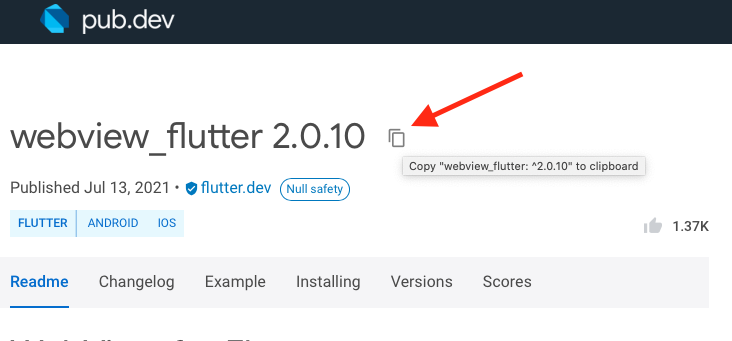
Now let’s Add webview_flutter as a dependency in your pubspec.yaml file.
Open pubspec.yaml file from your Project
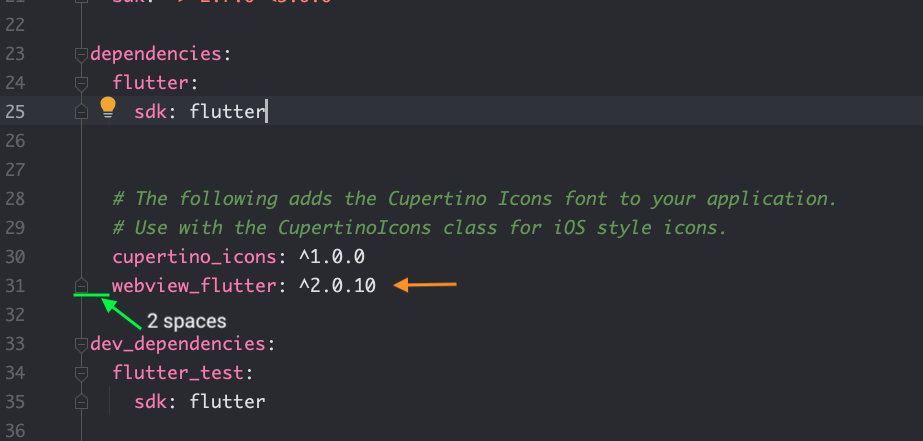
Add this WebView dependency to just underneath of cupertino_icons. Save or Click the Pub get (link) from Android Studio.
WebView usage
Let’s import the package
import 'package:webview_flutter/webview_flutter.dart';WebView(
initialUrl: 'https://kodia.dev',
);the initialURL parameter is applied to load the page by URL.
main.dart (Full Code)
import 'package:flutter/material.dart';
import 'package:webview_flutter/webview_flutter.dart';
void main() => runApp(WebApp());
class WebApp extends StatelessWidget
{
@override
Widget build(BuildContext context) {
return MaterialApp(
theme: ThemeData(primarySwatch: Colors.red),
home: Scaffold(
appBar: AppBar(title: Text("Kodia"),),
body: Website(),
),
debugShowCheckedModeBanner: false,
);
}
}
class Website extends StatelessWidget
{
@override
Widget build(BuildContext context) {
return WebView(
initialUrl: 'https://kodia.dev',
);
}
}Congratulation Let’s run the app.
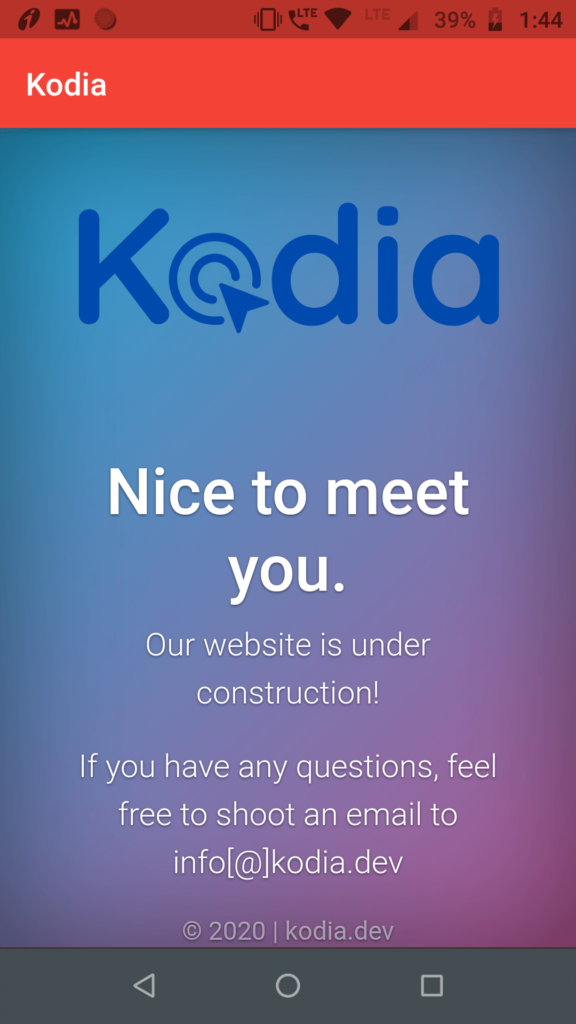
Let’s build a splash Screen for our web app
You can use any logo for your app. (eg. logo.png )
Learn more about displaying images on Flutter.
Create a new folder – assets/images. Let’s add your logo inside the images folder.
Make changes to pubspec.yaml file.

Create a new file called ScreenOne.dart (New > Dart File > ScreenOne)
MyApp Class (ScreenOne.dart)
class MyApp extends StatelessWidget {
@override
Widget build(BuildContext context) {
return MaterialApp(
theme: ThemeData(
primarySwatch: Colors.red,
),
home: Scaffold(
backgroundColor: Colors.red,
body: HomeApp(),
),
debugShowCheckedModeBanner: false,
);
}
}Timer for Splash Screen
Timer(
Duration(seconds: 4),
() => Navigator.pushReplacement(
context, MaterialPageRoute(builder: (context) => WebApp())));ScreenOne.dart (Full Code)
import 'dart:async';
import 'package:flutter/material.dart';
import 'WebApp.dart';
void main() => runApp(MyApp());
class MyApp extends StatelessWidget {
@override
Widget build(BuildContext context) {
return MaterialApp(
theme: ThemeData(
primarySwatch: Colors.red,
),
home: Scaffold(
backgroundColor: Colors.red,
body: HomeApp(),
),
debugShowCheckedModeBanner: false,
);
}
}
class HomeApp extends StatefulWidget {
_HomeAppState createState() => _HomeAppState();
}
class _HomeAppState extends State<HomeApp> {
@override
void initState() {
super.initState();
Timer(
Duration(seconds: 4),
() => Navigator.pushReplacement(
context, MaterialPageRoute(builder: (context) => WebApp())));
}
@override
Widget build(BuildContext context) {
return Column(
mainAxisAlignment: MainAxisAlignment.center,
children: [
Align(
alignment: Alignment.center,
child: Image.asset(
'assets/images/logo.png',
width: 200,
height: 150,
),
),
SizedBox(
height: 10,
),
Align(
alignment: Alignment.center,
child: Text(
"Kodia App",
style: TextStyle(fontSize: 24, color: Colors.white),
),
)
],
);
}
}
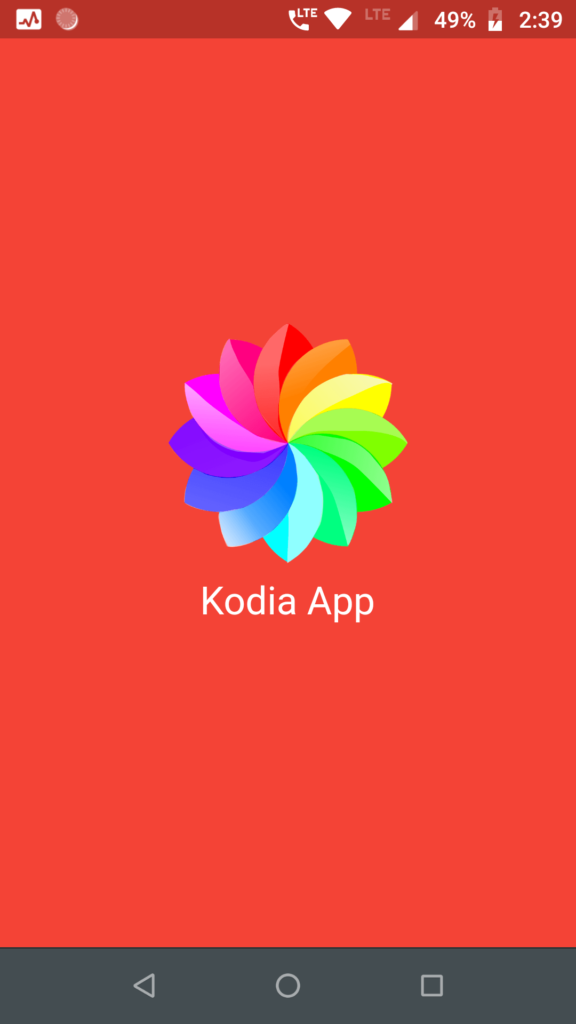


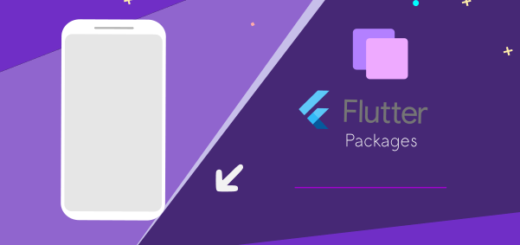
![Flutter AdMob Integration Tutorial: Banner Ad [2023]](https://bigknol.com/wp-content/uploads/2023/07/flutter_app_admob_integrate_android-520x245.png)
